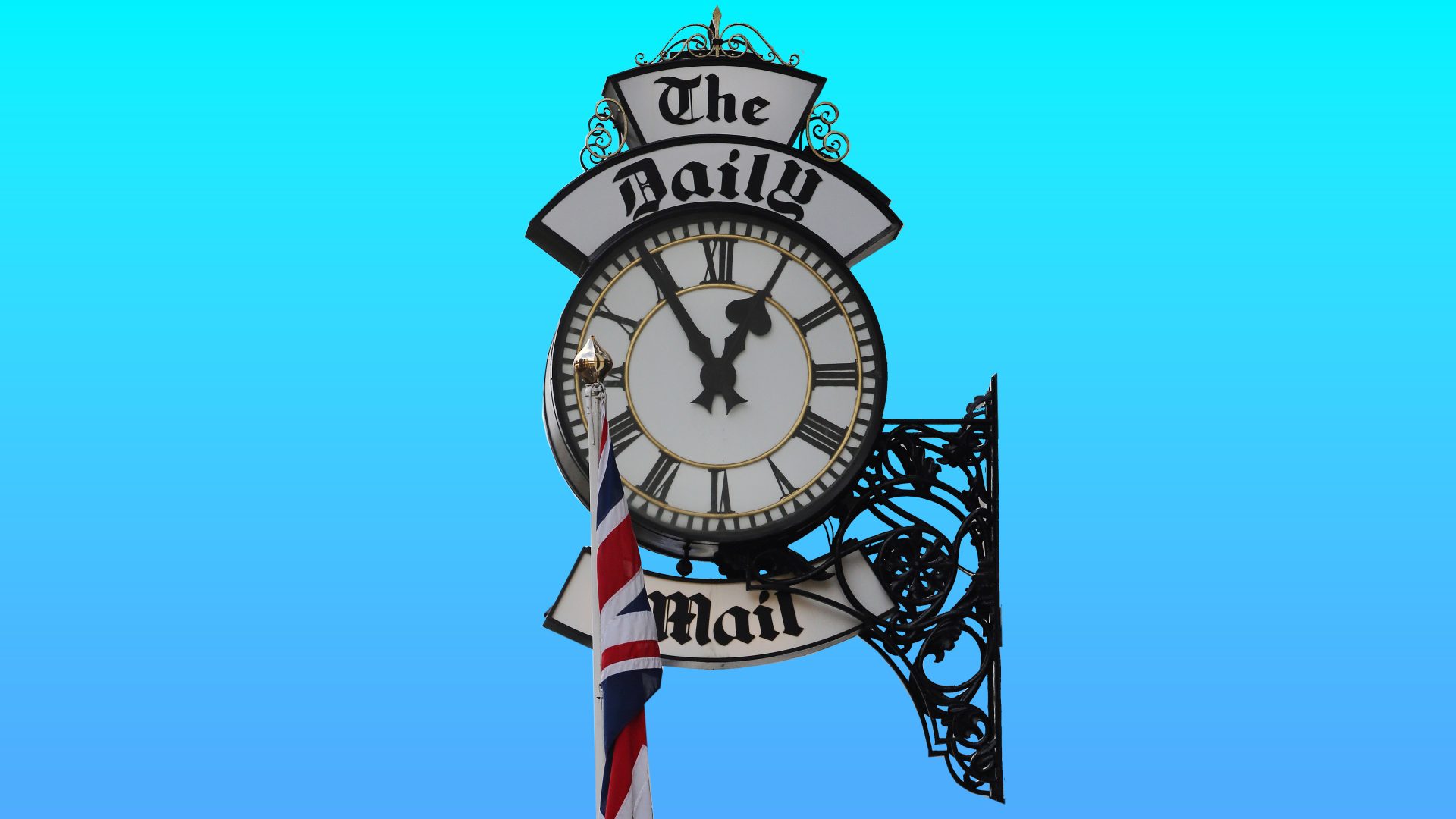Now that the former Daily Mail editor Geordie Greig is out of his year-long contractual obligations to his former employers, and happily ensconced as editor-in-chief of the Independent, what of Martin Clarke, who created the MailOnline behemoth for Lord Rothermere, and who also left the company in his lordship’s mystifying executive reshuffle just over a year ago?
Mandrake hears intriguing whispers that Clarke, with a consortium of investors that included Jimmy Finkelstein, the founder of the political news site The Hill, made an audacious approach to Rothermere last year to buy MailOnline outright, but was turned down. Undeterred, Clarke, with his investors, is now said to be planning to announce a “new concept” website that will be “the new MailOnline”.
Clarke, who single-handedly built up the MailOnline brand over 13 years when fellow executives such as Paul Dacre had originally been sceptical about digital journalism ever eclipsing print, had felt he should be given an ownership stake in his creation, but Rothermere had been unwilling to grant him one.
One insider tells me there is “a sense of trepidation” at the Mail’s Kensington headquarters about what Clarke’s intentions are: “When Geordie was sacked, the general assumption was that Martin was about to be put in charge of the whole print and online operation, which would have made sense. When it became clear Clarke was going, too, and Dacre coming back, it felt like we were heading back in time. It’s true there was a brief discussion about selling MailOnline, but it was swiftly ruled out.”
My disclosure that Clarke had decided to spend at least some of his gardening leave in Miami, learning to fly at the very school where the terrorists Mohammed Atta and Marwan al-Shehhi trained before taking part in the 9/11 attacks, did little to quell fears within the Mail building.
“I mean,” adds my insider, “what was Martin trying to tell us when he enrolled in that of all flying schools?”
It doesn’t look like the former deputy prime minister Sir Nick Clegg will be leaving Meta anytime soon. A stock market update from the social media giant shows he’s just been awarded 81,491 share options, currently worth around £13m. The shares are due to vest quarterly at one-16th of the total, beginning in May, and are “subject to continued service through each vesting date.”
Clegg will need to work for Meta for another four years to bag all his share options. The one-time Lib Dem leader joined Meta, then called Facebook, in 2018 as vice president, global affairs and communications, before being promoted last year to president for global affairs.
The convention that journalists should not attack their colleagues seems lost on Rachel Johnson. The sister of the former prime minister launched into a tirade on her LBC show last week about all the “Boris-bashing” that had been going on.
She singled out her fellow presenter Sangita Myska for giving three hours of airtime to people “crying with rage” about her brother and “saying he should be in prison for doing 10 minutes in a cabinet room on his own birthday.” She went on to suggest Myska was “convinced of her own righteousness.”
Myska responded demurely on social media to this “friendly fire,” describing Rachel Johnson as “a valued colleague,” spoke of her own rule never to speak on-air about colleagues’ shows, and made the point it wasn’t up to her who called into her own show. “Listeners who supported Boris were put on air – they represented a tiny minority of my callers,” she said.
Dame Margaret Hodge may not be fighting the next election as she is stepping down as a Labour MP, but she may have another tussle on her hands. Hodge, the current chair of the All Party Parliamentary Anti-Corruption group, has written a paper about how to tackle corruption for Royal Holloway, which is part of London University, where Hodge happens to be chair of council.
The businessman and Tory donor Mohamed Amersi has objected to some of Hodge’s comments and has issued the MP for Barking with a “Slapp” – an acronym for strategic lawsuit against public participation, which is designed to make people think twice before publishing. Parliamentary friends of Hodge tell me that she is not the type to be intimidated. “Remember that Margaret took on Nick Griffin of the BNP in Barking in the 2010 general election,” says one MP colleague. “And more recently she stood up to Jeremy Corbyn over antisemitism.”
Amersi himself is not shy of using his lawyers as he is currently taking on both BBC Panorama – over an allegation about him in their Pandora Papers programme – and the former Tory MP Charlotte Leslie over a memo about Amersi’s business dealings.
Getting Rishi Sunak to declare his earnings was like drawing a particularly deep-set tooth, but scarcely surprising given they amounted to a total of £4.766m across the past three tax years.
Sunak’s fellow ministers and their predecessors are proving every bit as reluctant to talk about the money they are making. The current register of members’ interests is unbelievably three administrations out of date, and last made up to May 2022.
Sir Laurie Magnus, Sunak’s independent adviser on ministers’ interests, has assured the Public Administration and Constitutional Affairs Committee that getting ministers to come up with the required information is high up his to-do list.
Ever since Sir Bernard Jenkin conspicuously failed to shake the hand of Will Lewis at a public event – this was at the height of the Daily Telegraph’s parliamentary expenses revelations when Lewis was still editor – the newspaper has been reluctant to say a good word about him.
In the immediate aftermath of Lewis’s snub, the paper ran a series of disobliging pieces about Jenkin, poking fun at him for, among other things, being a keen naturist and the inspiration of a series of losers called “Bernard” in Richard Curtis films, after the politician married Anne – now Baroness Jenkin – whom the screenwriter had loved and lost.
Jenkin’s star turn as the grand inquisitor on the parliamentary committee inquiring into whether Boris Johnson lied to parliament – a rare case of Brexiteer-on-Brexiteer action – was rightly acknowledged and even lauded by other papers. Only the Telegraph decided in its report that the whole thing and all the characters involved were “preposterous”.
What is it about the Daily Mail, Boris Johnson and cats? The paper’s grandee Paul Dacre once wrote in the Spectator of his mate Johnson that he had “the morals of an alley cat”. On the Mail’s front page, after Johnson’s disastrous appearance before the parliamentary committee last week, an individual with an obsession with cats struck again in the headline – this time saying Johnson had been “as agile as a cat”.
A word of advice – Lord Rothermere, the paper’s owner, is definitely not a cat person. He is very much a dog person. He is the loving owner of a spaniel and a chihuahua.




